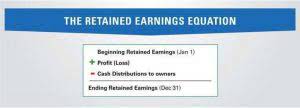Content

Salvage value is an estimate of the residual amount you will receive when you dispose of the asset. An estimated salvage value can be determined for any asset that a company will be depreciating on its books over time.
Why do insurance companies deduct salvage value?
A salvage deduction in motor insurance refers to a vehicle that an insurance company deems as being a total loss or write off. A vehicle is written off when the insurance company believes that the cost of repair will be more than the car's market value.
Many business owners don’t put too much thought into an asset’s salvage value. Salvage value is an asset’s estimated worth when it’s no longer of use to your business.
A Foundation For a Reasonable Estimate of Salvage Value
It’s difficult to even calculate the salvage value of a car because there are so many factors that you don’t know about to consider. Mechanics, auto shops, and dealerships might be able to give you an estimate for your salvage vehicle, but it’s hard to know if their offer is fair.
- Like regular used cars, depreciation will proceed at a predictable rate for the lifetime of the vehicle.
- It is, therefore, better to take zero value for applying depreciation on the asset.
- If a product is sold for consideration other than solely cash, the fair market value of such other consideration shall be included in the Net Sales Price.
- All assets have a salvage value, which is the estimated value each asset will have after it is no longer going to be used in the operation of a business.
- However, calculating salvage value helps all companies estimate how much money they can expect to get out of the asset when its useful life expires.
- Even if you go out of pocket for substantial repairs or insurance pays for them, you are still likely to receive about 70% of the value of a used car that was never damaged.
Take this result and subtract it from the original price to get the salvage value. For nearly a century, the KBB has offered how to calculate salvage value car values according to make, model and year. In doing so, it earned a celebrated reputation for accuracy and reliability.
Tips On Accounting: Accounting For Tips
The articles and research support materials available on this site are educational and are not intended to be investment or tax advice. All such information is provided solely for convenience purposes only and all users thereof should be guided accordingly. The scrap value definition, also known as salvage value, is the value of an asset after it is fully depreciated. First, the item can be sold to another company which can still make use of the asset, despite the less-than-optimal condition it is in. This depends on the chosen depreciation schedule and whether the item can still operate, in some ways, as designed. When this happens, a loss will eventually be recorded when the assets are eventually dispositioned at the end of their useful lives. Auditors should examine salvage value levels as part of their year-end audit procedures relating to fixed assets, to see if they are reasonable.

Even if the company receives a small amount, it may be offset by costs of removing and disposing of the asset. Perhaps the most common calculation of an asset’s salvage value is to assume there will be no salvage value. As a result, the entire cost of the asset used in the business will be charged to depreciation expense during the years of the asset’s expected useful life. Map out the asset’s monthly or annual depreciation by creating a depreciation schedule. Say you’ve estimated your 2020 Hyundai Elantra to have a five-year useful life, the standard for cars. Take a look at similarly equipped 2015 Hyundai Elantras on the market and average the selling prices.
Tips to Bid Better at a Car Auction
FREE INVESTMENT BANKING COURSELearn the foundation of Investment banking, financial modeling, valuations and more. Rather it’s the raw materials of no value to the manufacturing company. Find out what it would cost to replace the asset if it’s available new. If the asset has joint personal and business use, the owner can depreciate only the business use percentage of the asset. Other commonly used names for salvage value are “disposal value,” “residual value,” and “scrap value.” Net salvage value is salvage value minus any removal costs.
Or if there is, the amount is very minimal if we compare it to the costs of acquiring the asset. Some businesses may even choose to always set their assets’ salvage value as zero. As already mentioned, salvage value is one of the components in the calculation of an asset’s https://www.bookstime.com/ depreciation. Or you could also see it as the asset’s value at the end of its useful life. We will learn its definition, as well its role in the computation of an asset’s depreciation. It is an important component in the computation of an asset’s depreciation.
